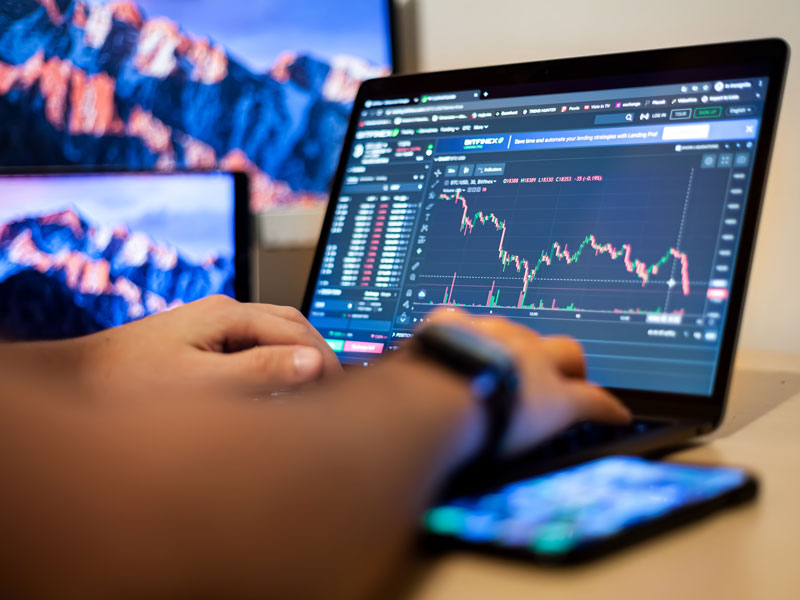Understanding Forex Trading An In-Depth Guide 1617589485

What is Forex Trading?
Forex trading, also known as foreign exchange trading or currency trading, is the process of exchanging one currency for another with the aim of making a profit. This global decentralized market is the largest and most liquid financial market in the world, involving trillions of dollars in transactions daily. Whether you are a beginner seeking knowledge or an experienced trader aiming to sharpen your skills, what is trading forex fx-trading-uz.com offers resources and insights into the dynamic world of currency trading.
The Basics of Forex Trading
At its core, forex is about the exchange rates between different currencies. The forex market operates 24 hours a day, five days a week, offering traders the flexibility to trade at virtually any time. Traders speculate on the price movements of currency pairs, buying one currency while simultaneously selling another. The major currency pairs include EUR/USD, GBP/USD, and USD/JPY among others.
Currency Pairs Explained
In forex trading, currencies are quoted in pairs, comprising a base currency and a quote currency. The base currency is the first currency listed, and the quote currency is the second. For instance, in the currency pair EUR/USD, the Euro is the base currency, and the US Dollar is the quote currency. Understanding these pairs, and how they are affected by various economic indicators, is crucial for any trader.
How Forex Trading Works

The forex market allows participants to buy, sell, exchange, and speculate on currencies. Trading occurs through brokers, who serve as intermediaries between retail traders and the larger liquidity providers. When trading currencies, participants can use leverage to control larger positions with a smaller amount of capital. This characteristic can amplify profits but also increases the risk of loss. Leveraged trading is a double-edged sword, emphasizing the importance of risk management strategies.
Benefits of Forex Trading
Forex trading offers several advantages compared to other financial markets:
- High Liquidity: With an average daily trading volume exceeding $6 trillion, forex is the most liquid market in the world.
- Accessibility: Forex markets are open 24 hours a day, making it easy for traders to participate regardless of their time zone.
- Leverage: Traders can use leverage to amplify their buying power, allowing for greater potential profits (and losses).
- Diverse Trading Opportunities: Numerous currency pairs and trading strategies mean traders can find opportunities that match their risk tolerance and trading style.
Risks in Forex Trading
While forex trading offers many benefits, it also comes with significant risks that traders must be aware of:
- Market Risk: Exchange rates fluctuate due to various factors, which can lead to losses.
- Leverage Risk: While leverage can magnify profits, it also amplifies losses, which can exceed initial investment.
- Psychological Risk: Trading can be emotionally taxing, leading to impulsive decisions and potential losses.
- Operational Risk: Issues related to technology, broker reliability, or internet connectivity can impact a trader’s ability to execute trades effectively.

Forex Trading Strategies
Successful forex trading often involves the implementation of various strategies. Some popular methods include:
- Day Trading: This strategy involves opening and closing positions within the same trading day to capitalize on short-term market movements.
- Scalping: A technique where traders make numerous small trades throughout the day, aiming to profit from small price changes.
- Swing Trading: This strategy focuses on capturing price swings in the market over a period of days or weeks.
- Position Trading: This longer-term strategy involves holding positions for extended periods, often based on fundamental analysis of currency value.
Getting Started in Forex Trading
If you’re interested in venturing into forex trading, consider the following steps:
- Educate Yourself: Learn the basics of trading, including terminology, strategies, and technical analysis.
- Choose a Reputable Broker: Select a broker that is regulated and offers competitive spreads and leverage.
- Develop a Trading Plan: Outline your trading goals, risk tolerance, and strategies. A well-structured plan can guide your trading decisions.
- Practice with a Demo Account: Many brokers offer demo accounts where you can practice trading without risking real money.
- Start Trading with Real Capital: Once comfortable, start trading with a small amount of real capital, gradually increasing as you gain experience.
Conclusion
Forex trading presents numerous opportunities for both new and experienced traders. By understanding the fundamental aspects of the market, employing risk management strategies, and staying informed about global economic trends, traders can enhance their chances of success. Remember to continuously educate yourself and adapt to changing market conditions to navigate the complexities of forex trading effectively.
